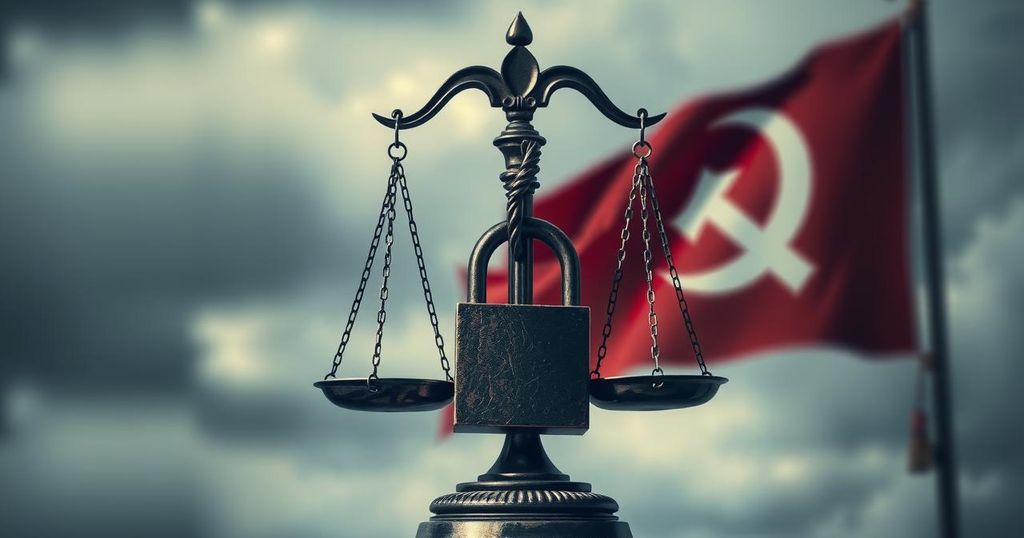Tunisia Sentences Pro-Palestinian Activist to Jail Over Extremism Charges

- A Tunisian court has upheld a six-month prison sentence for activist Ghassan Ben Khelifa.
- The ruling has been condemned by rights groups as a politically motivated act.
- Ben Khelifa was accused of managing a Facebook page with ‘jihadist’ content, but investigations found no evidence against him.
- This case raises serious concerns about freedom of speech and civil liberties in Tunisia.
- Pro-Palestinian groups have called for action against what they view as judicial repression.
Ghassan Ben Khelifa’s Prosecution Faces Widespread Backlash
Tunisia’s judiciary has made headlines again as an appeals court has upheld a six-month prison sentence against prominent pro-Palestinian activist Ghassan Ben Khelifa for allegedly managing a social media page with ‘jihadist’ content. Rights organizations and advocates for press freedom have publicly denounced this ruling, labeling it as politically charged. This verdict came as part of a case that dates back to September 2022, under Article 86 of Tunisia’s Telecommunications Code, which prohibits “offending” individuals through digital platforms. Critics argue that this is a blatant attack on free speech and dissenting opinions.
Civil Liberties Erode Amidst Government Crackdown
Ben Khelifa, who also serves as editor-in-chief of the progressive media platform Inhiyez, has accused the court’s ruling of being indicative of a wider trend aiming to silence voices critical of the government. Although investigations reportedly found no direct links between him and the questionable Facebook page, the court still chose to confirm the initial ruling. Civil society groups, political activists, and even the Tunisian association Intersection for Rights and Freedoms have slammed the ruling as “blatantly unjust”, warning that the increasing incarceration of journalists presents a significant threat to civil liberties in Tunisia. Ben Khelifa’s own words echo the frustrations expressed by many: “This is not about me, it speaks to a broader effort to repress anyone who stands up for the oppressed.”
Government Stands Firm Amid Growing Activist Dissent
The ruling has come on the heels of escalating concerns regarding the state’s treatment of political dissidents, especially since President Kais Saied was re-elected last October. Many activists from pro-Palestinian groups have experienced increasing repression, with at least five of them arrested since early October. Notably, three are being investigated for terrorism charges. These pro-Palestinian groups have been vocally critical of the government for not taking a stronger stand against nations perceived to be supporting violence in Gaza. Despite Saied’s own public declarations in favor of Palestine, he has stalled legislative efforts aimed at criminalizing normalization with Israel — citing security concerns as justification. Critics of Saied’s administration fear this trend recalls past decades of oppression under the regime of former president Zine El Abidine Ben Ali.
The recent sentencing of Ghassan Ben Khelifa highlights a troubling trend of repression against dissent in Tunisia. Rights advocates are concerned that this case is just one example of a broader crackdown targeted at pro-Palestinian activists and other critics of the government. As the political landscape in Tunisia evolves, the erosion of civil liberties continues to raise alarms about the state of democracy and freedom in the country.







